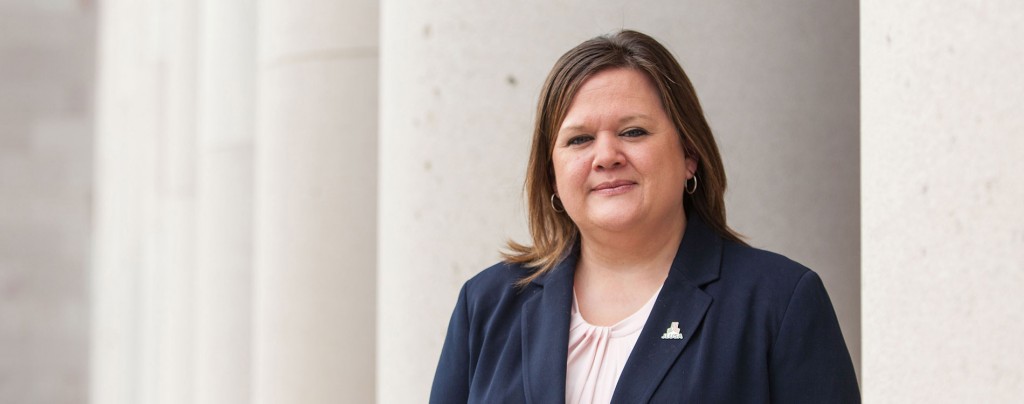Page 377 • (3,803 results in 0.156 seconds)
-
Studies, and a Ph.D. in Musicology from Yale University. She held full-time faculty and administrative positions at the University of Michigan and the University of California, Irvine. From 2008–16 Rae Linda served as associate provost for undergraduate education and held the faculty position of professor of music at Loyola Marymount University, Los Angeles. In August 2016, Rae Linda began a new position as provost and senior vice president for academic affairs at Pacific Lutheran University. Her
-
her time on The Voice. Guest Contributors Samuel Torvend, Ph.D. Samuel Torvend, Ph.D., is professor of the history of Christianity and currently serves as the university chair in Lutheran studies. As a historian of Christianity, his research focuses on the history of religious responses to poverty and food insecurity. He also teaches courses on religious art and architecture and their role in reforming movements. Among his published works are Luther and the Hungry Poor: Gathered Fragments . Kevin
-
Lutheran studies at PLU, explained that Luther’s native Germany was already a hotbed of discontent, with many Germans increasingly frustrated with church practices. Torvend said Luther’s path to revolution started with a personal quest to find answers to his own questions about salvation and damnation. He would frequently ask his religious superiors what he needed to do in order to be with God in the afterlife. “That really kind of drove him crazy,” Torvend said. “On the one hand he’s told he can do
-
activities that serve the community and the professions. Works cooperatively and collaboratively with the academic deans of other schools and divisions, the associate provosts, and other members of the University leadership team. Provides leadership in affirmative action, cultural diversity, international education, and interdisciplinary studies. Works closely with the Associate Provost for Graduate Programs and Continuing Education, to assist in providing leadership for lifelong learning through
-
currently enrolled, eligible students will be notified of their FERPA rights annually by publication in the PLU Student Handbook. Interested parties may review the policy in the Office for Student Life, Hauge Administration Building, Room 105. Visit the Student Life web site for further information at https://www.plu.edu/student-life/. What is the Compliance Statement?Pacific Lutheran University is committed to providing equal opportunity in education for all students without regard to a person’s race
-
era.School of the ArtsDate and Artist: 1988; Tom Torrens See it: Located on the western entry of upper campus. “The School of the Arts” sign is a combination of materials including neon letters that spell out “arts”. This is sculpture was commissioned by the School of Arts now the College of Professional Studies and is approximately eight feet long and eight feet high.Generations of OakDate and Artist: October 26, 1995; Kathryn Wold (Sparks) See it: Located on lower campus below the music center. The
-
national security interests of the United States. The region includes China, which is rapidly assuming prominence on the global stage. Rare are the days that go by without at least one news story on China. Given PLU’s Chinese language studies, its China summer Service Learning program, as well as other international programs sponsored by the Wang center, I thought I would devote a few minutes to this most fascinating country. For the past 20 years, China’s GDP has grown by an average of 9.0% per year
-

be drawing for an archaeological project, students not only have to do research and preliminary studies; they also have to communicate with someone else at stages of its development to show the progress and get feedback and make changes based upon that feedback. I saw it as a great opportunity for students to experience. Instead of having one student doing something for him, I tried to give students the opportunity to build something over time. Andrews: My specialty is stone-tool analysis, so I
-

applied (for the bar).” Simmons went all in on that bet. She met with Shon Hopwood, a lawyer and author of “Law Man: My Story of Robbing Banks, Winning Supreme Court Cases, and Finding Redemption.” Hopwood graduated from the University of Washington Law School after serving time for crimes he committed. “He said ‘you absolutely can (become a lawyer),’” Simmons recalled, “and he told me exactly how to do it.” And she did. Just as she did during her time at PLU, Simmons leaned into her studies and then
-
, Simmons leaned into her studies and then some. She got to know legislators in Olympia, working on criminal justice reform. She did internships, externships and other work that far exceeded the status quo. Strait and Simmons were confident when they brought the body of work to the Washington State Bar Association Character and Fitness Board for review, ahead of her bar application. “He said in all of his life he had never seen a record of rehabilitation like mine,” Simmons said. “He felt really, really
Do you have any feedback for us? If so, feel free to use our Feedback Form.


